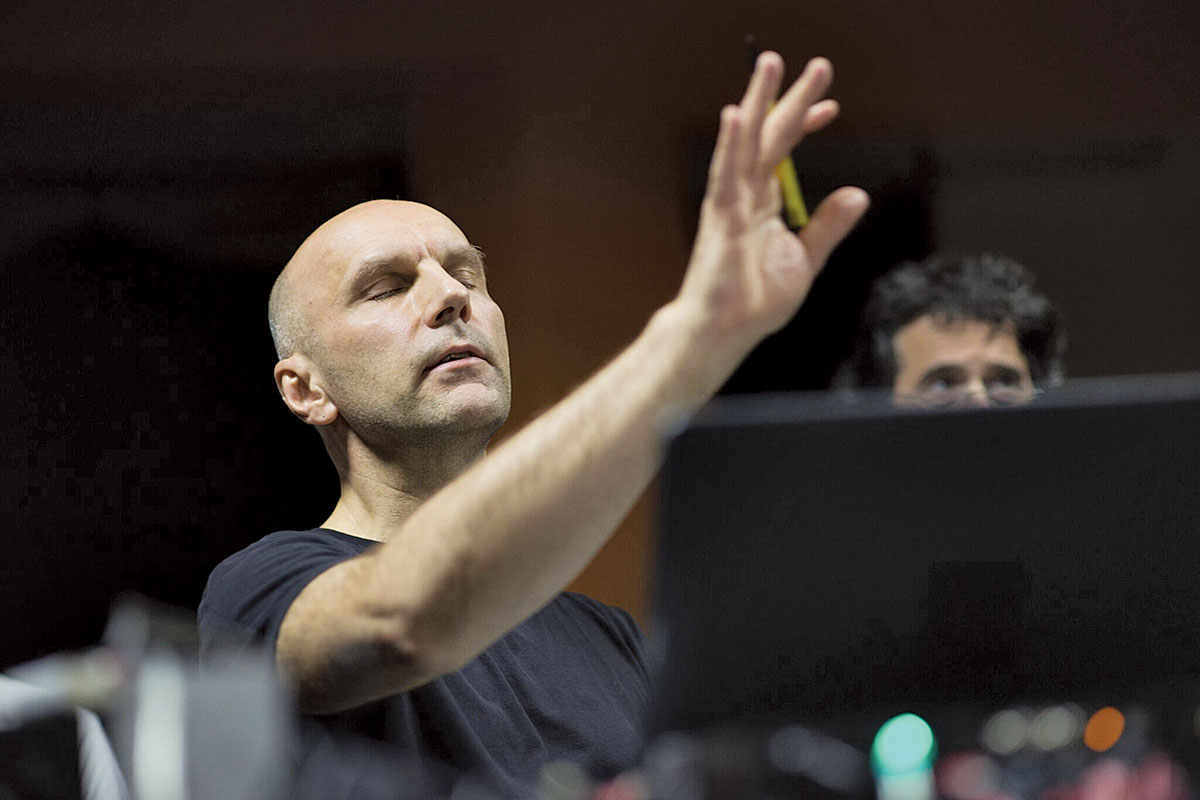For its academic concerts, the New Music Touchpoints festival combines the old with the ultra-new, using musical instruments invented centuries ago in tandem with the latest virtual reality gadgets.
Held in Lisbon, Portugal, on June 11–20, the festival will broadcast its events in Kyiv using 360-degree virtual reality technology.
New Music Touchpoints was founded this year by the team behind Kyiv Contemporary Music Days, another academic music festival, which has been held in Kyiv annually since 2015.
The founder of the festival — pianist and composer Albert Saprykin — says that even though the concerts are being held in Lisbon, the team didn’t want Kyiv citizens to miss out.
“Because of how wonderful our favorite audience in Kyiv is, we will organize live streams (broadcast) in 360 (degrees),” Saprykin told the Kyiv Post.
The festival will feature 30 musicians from all over the world, who will play modern academic music and give lectures.
Some of the events will be broadcast live in Kyiv Mohyla Business School starting from June 15. Kyiv fans of classical music, wearing virtual reality headsets, will be able to see every corner of the Lisboa Incomum music hall, where the concerts are to be held, and experience the events as if they were sitting in the audience.
Moving to Portugal
The festival’s history started last October, when a friend and regular of Kyiv Contemporary Music Days, Portuguese composer and musician Jaime Reis, opened a music venue in Lisbon and proposed that the festival team host their concerts there.
The group, headed by Saprykin, decided to take a risk and arrange a festival in the country in which they had never held an event.
Saprykin says that the audience in Lisbon differs from the one in Kyiv, but that every concert is unpredictable, no matter where it is held.
“You never know how many people will attend a concert,” he said.
The festival kicked off on June 11. It will hold a total of 13 concerts and 12 lectures featuring both foreign and Ukrainian artists.
“We bring together musicians that perform in Vienna, Paris, and Graz,” Saprykin said.
They will play music by contemporary composers and the classics of the 20th century.
One of the most prominent Ukrainian musicians, pianist Antonii Baryshevskyi, will play music by modern Ukrainian composers Valentyn Sylvestrov, Vitaliy Hodziatsky, Oleksii Retinskyi and Svyatoslav Lunyov.
“Certainly, some of the works of these composers have already been played in Lisbon, but we see some special beauty in the fact that they will be played all together by another Ukrainian composer,” Saprykin said.
Virtual reality
In Kyiv, New Music Touchpoints will hold six VR screenings, two of them live.
Attendees can either wear VR headsets or use their own phones stuck into google cardboard viewers (basically headsets made of cardboard) — the difference is Hr 75 in price.
Saprykin says that this is a technically challenging project, and the festival’s team had to attract additional partners that provided equipment and financing.
The founder says that as far as he knows nobody has screened concerts in VR in Ukraine before, and the team is “glad to be the pioneers.”

German composer Hans Tutshku gives a lecture at the academic music festival New Music Touchpoints in Lisboa Incomum, Lisbon, Portugal on June 11. (Sergey Anishchenko)
Unlike ordinary screening methods, 360-degree virtual reality can recapture the atmosphere. Such screening, Saprykin says, would have come in handy at one of the concerts of Baryshevskyi in Kyiv — it has gathered so many attendees that the organizers had to seat them on the window sills and put chairs on the stage.
He says that apart from the obvious reason — to increase the size of the audience — New Music Touchpoints will use virtual reality to record the concerts, capturing them for posterity.
“We thus want to realize the preservation, continuity in culture,” he said. “Some person in 2083 will be able to put on a headset, look around and turn up at a concert that was held far back in 2018, when his parents hadn’t even been born yet.”
Academic music boom
Saprykin says that for a while it has been generally thought that modern classical music is merely created by composers and consumed only by the same composers.
“But the situation in Ukraine today is quite different, and in a certain sense it is unique.”
The musician says that concerts of modern academic music are very popular in Kyiv, and people of various occupations attend performances.
A chamber concert by a small ensemble or one musician in Ukraine’s capital attracts up to 200 attendees, Saprykin says.
“That is unprecedented for places like Poland, Germany, and Portugal.”
Saprykin says that foreign musicians who perform at Kyiv Contemporary Music Days are always amused by the quality and size of the audience, as they listen to the music with a great deal of enthusiasm.
“This is due to the cultural spirit of Ukrainians that has awakened in the recent years.”
Saprykin says that the festival has just started experimenting with virtual reality, and that they have ambitious plans for the technology.
He says that although Kyiv is often called the second Berlin, where many cultural events take place, the situation is not quite as good in other Ukrainian cities.
Therefore, in future, the festival hopes to arrange virtual reality screenings in other regions, so that their citizens can witness contemporary academic music concerts, just as Kyiv residents do.
“We would like more people in the regions to be involved in events that we organize.”
New Music Touchpoints. Lisboa Incomum (Lisbon, 20 General Leman St.) June 11–20. Kyiv Mohyla Business School (Kyiv, 8/5 Voloska St.) June 15–20. Hr 75-150.
